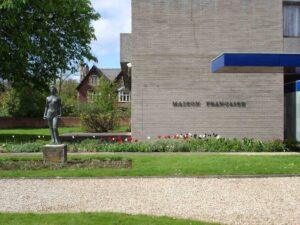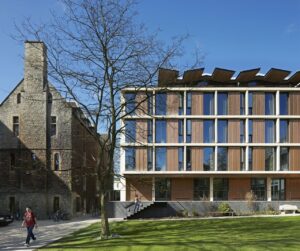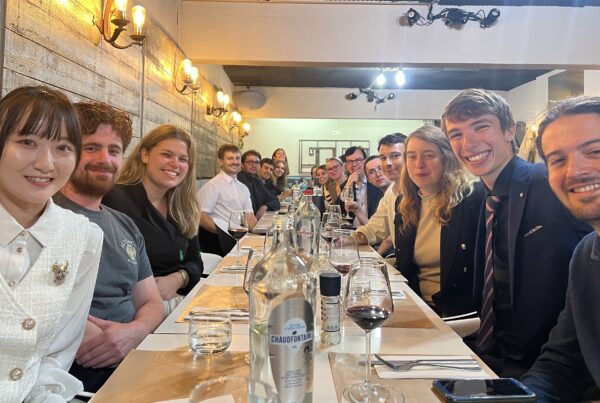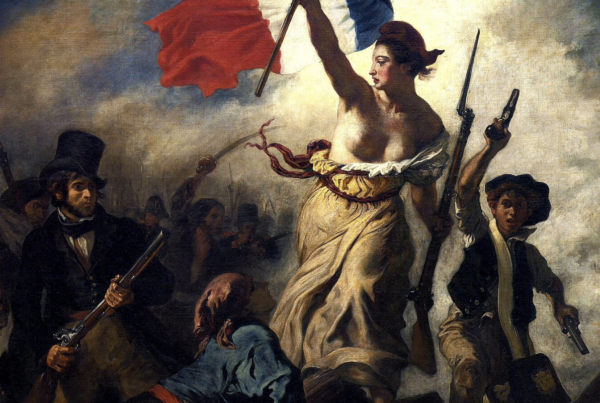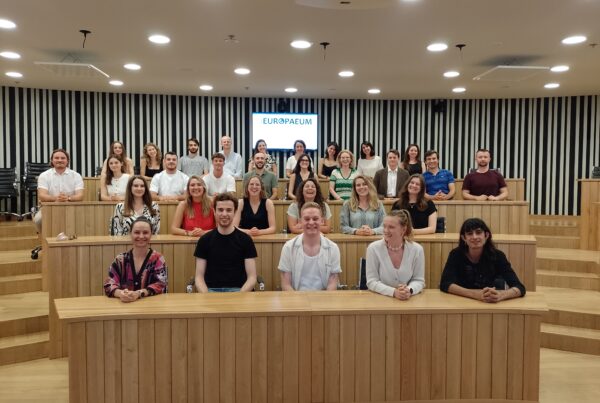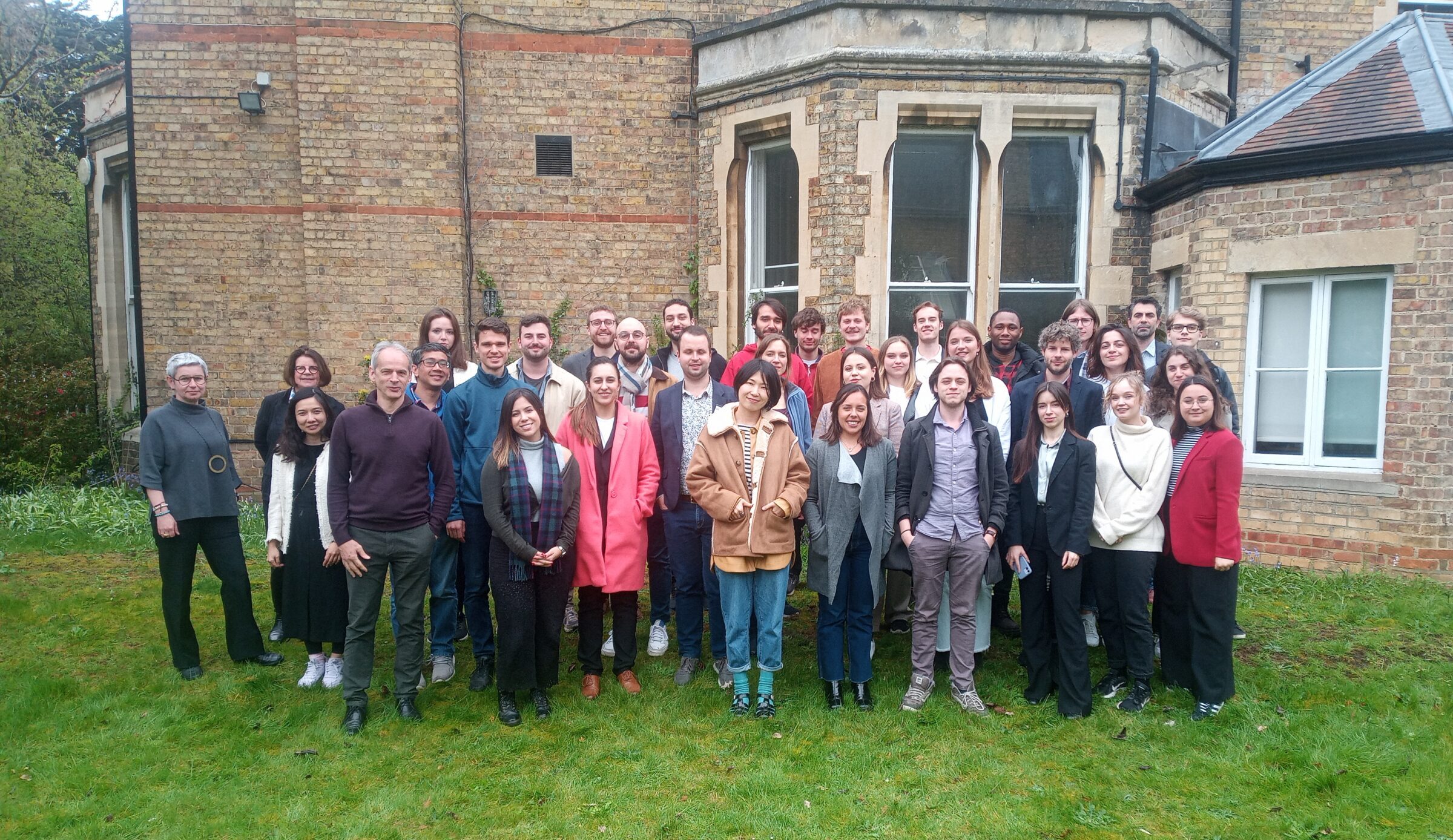
Oxford Spring School: Shifting Paradigms in Europe?
19-21 April 2023 | Maison Française d’Oxford & St Antony’s College (University of Oxford), Oxford, United Kingdom
This year’s Oxford Spring School, in co-operation with Maison Francaise d’Oxford, asked whether we are living through an age of paradigm shifts at all levels of European life. Over two and half intense days of lively discussion, students, and speakers from across our network examined the topic from every angle.
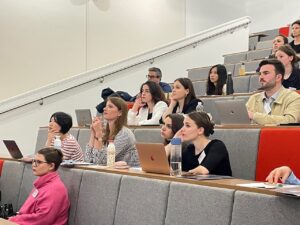
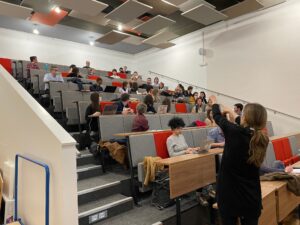
On Day 1, Dr Rory Cox questioned how confident we could be that our reasons and ideals for democracy matched our practical systems and the extent we could justify violating democratic principles in the name of defending them. Beatrice Giovannoni and Michele Benazzo developed this theme by looking at ‘liberal illiberalism’ and the (fine) lines between toleration and dangerous radicalisation. Cinzia de Marzo and Ioanna Charalampopoulou representing Agora, citizen’s assembly in Brussels, discussed an alternative model that promoted a more direct, participatory democracy while also working with representative systems.
In the Society panel, Professor Danny Dorling showed graphically how politics and economics converged to make Britain one of the most unequal countries in Europe while Leonie Westhoff from the Centre of European Policy studies discussed the challenges presented by a changing world of work. The latter was reinforced by Omer Sahin’s reflections on education and its problems that are exacerbated by AI. Dr Erin Young confronted the illusion of disinterested data in her lively discussion on gender, ethics, and AI, which Emilia Lounela confirmed from her research on Incel where she found that while digital forums do not always engineer social problems, they amplify and facilitate them. Artist Yasmine Boudiaf also found much for concern in the infiltration of AI tech into daily life and proposed means of restoring a more democratic tech commons in response.
Day 1 concluded with papers reflecting on paradigms from EU and non-EU policy perspectives. In stream one, topics include a quantitative account comparing the rise of populism with attitudes towards China in Italy, survey of shifts in EU policy toward migration, and an account of changing attitudes towards eastern enlargement in the wake of the Ukraine War. Elsewhere, papers challenged current paradigms of how we conceive of the EU, the factors influencing sustainability clauses in EU trade agreements and the ways in which minority nations can be incorporated into the court infrastructure in pluri-national states which led to an interesting discussion whether the EU could be thought of as an empire.
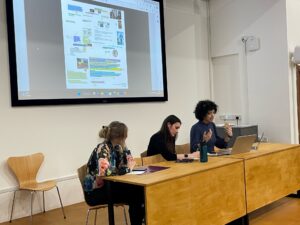
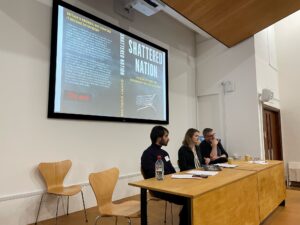
Day 2 continued these themes with papers on adapting policy priorities and models in response to change. Some addressed how smaller nations reconcile energy policy or economic autonomy with a ‘return to Europe’ on the one hand and neo-liberalism on the other. The question of how to manage justice during on-going conflicts was also considered. Others took sideway angles in search of fresh light asking how attitudes to sportswashing during the FIFA World Cups of 2018-2022 indicated shifting policy commitments or whether JF Kennedy’s ‘Ich Bin Ein Berliner’ speech signalled a transitional moment in European history. Further papers reflected on whether Shakespearean Brutus’ account of War was ‘good to think with’ regarding present conflicts or if a reconsideration of Christian ideas placed European culture in a different perspective.
Later, presenters suggested the need to revise the current External Incentives Model for candidate states so that the process takes less time and examined the polarisation of Northern Irish politics since the peace process, noting how trust in politics is influenced by identification as unionist or republican. The extent to which the EU is shifting from a peace-making body to a defensive and potentially offensive bloc was assessed while in the second stream, varying levels among European solidarity among Italian diaspora and EU aspirations toward Eastern enlargement were covered. China’s coverage of the Ukraine War provided a (admittedly vested) view of Europe from the outside.
In the afternoon a panel on climate change with Professor Myles Allen, Dr Rupert Read, Manon Heerts and Maryna Lakhno frankly confronted tensions between the pursuit and implementation of technical solutions to carbon capture with a wider need for changes in political culture. Scales of responsibility—macro, meso, and micro—were also evaluated. Professor Richard Whatmore concluded the day with a vivid account of paradigm shifts which were simultaneously failed paradigm shifts at end of the 18th century.
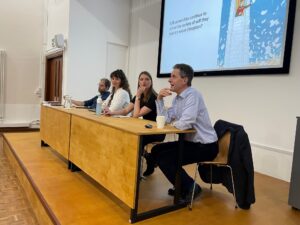
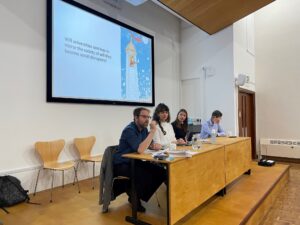
Day 3 opened with a compelling lecture from Professor Judith Pollman on paradigm shifts in historiography (and the historiography of paradigm shifts). Professor Santiago Zabala and Dr Katerina Kralova concluded the panels by wondering why when all things pointed towards change or the need for change, we ignored warnings and continued to ‘repeat’ preventable mistakes. The final words went to our student discussants who highlighted a range of factors such how contested the term ‘paradigm’ was and wondered whether or not it was a useful tool for describing, and responding to change or not…While some considered that it offered an opportunity to promote more ‘joined up’, transdisciplinary thinking, others felt the most that might said was that we lived in a paradigms of paradigms, and it was better to get on and tackle each issue as it arose. Whatever the final answer might be, a huge thanks must go to all those who contributed and participated to make the event a great success.
